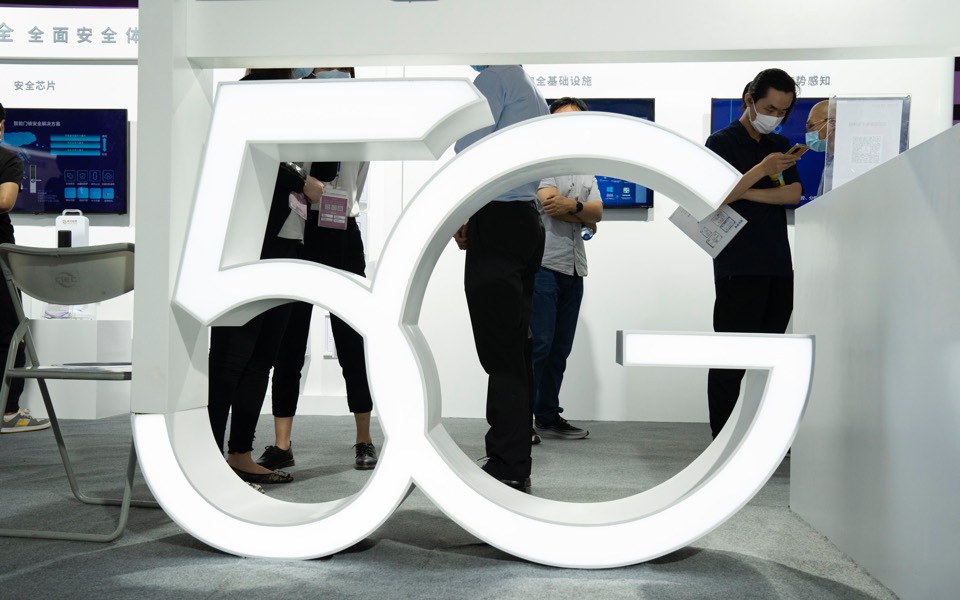Seize the opportunity for a digital transformation

This week, all students in China are back at school. What a relief it is that Covid-19 has been brought under control and the economy has rebounded strongly in the country. It is a hard-won victory by the government, by the people and especially by all medical workers and scientists. It is also a victory of science and technological innovation, especially digital and information technology.
Digital broadband was the foundation that supported the implementation of telemedicine, remote consultation and prevention. The health code app and contact-tracking program facilitated the localization of virus infection. E-commerce platforms and online services ensured that life went on as usual in cities and villages when the virus threatened even the food supply. AI, 5G, big data and digitalized solutions not only contributed to virus prevention efforts, but also injected new dynamism into the economic recovery and everyday life.
In Greece, a European model for Covid-19 prevention and control, digital technology also played a positive role during the epidemic. The government took this opportunity to speed up the process to digitalize its governance and economy. There are many more countries that have gone digital over the past few months.
The world is on track to embrace another wave of information revolution represented by 5G technology, which is ushering in a new ditigitalized era of “everything connected and intelligent.” The Covid-19 epidemic has only accelerated this process.
Well before the outbreak of Covid-19, China had embarked on the journey of constructing “new infrastructure,” which called for accelerating the construction of 5G networks and data centers and the industrial internet. Chinese information and communication technology (ICT) businesses, already globally competitive, have been riding the tide to further develop and take a firm lead in global 5G development.
These Chinese enterprises, such as Huawei, ZTE and Xiaomi, have not only facilitated and transformed the digital connection and convenience of China to make it “a Nation on Apps,” but also enabled many countries to initialize and upgrade the digitalization of their infrastructure and communication. The stories to this effect are abundant. Thanks to my professional experience, I have paid frequent visits to Central and Eastern European countries in the past few years and been deeply impressed by the fruitful cooperation between Chinese and local enterprises on 4G networks and services.
Chinese ICT companies, emerging and thriving in an age of globalization, truly believe in win-win cooperation and shared development. Chinese entrepreneurs understand that spearheading technology like 5G represents a new era for mankind not only in the sense that it entails faster speed and more stable connections, but also, even more profoundly, that it calls for a new mentality of operation featuring openness, inclusiveness and transparency. In this new era of fast-growing technology, cooperation is key and safety builds the necessary trust.
The safety of Chinese ICT products has been tested and fully proven. For example, over the past 30 years, Huawei has been one of the most scrutinized IT companies in the world, with its European operators testing its equipment time and again, which has proven its quality and safety. Huawei is also the first ever enterprise of its kind to openly pledge never to allow backdoor access compromising the security and privacy regulation of any country. Huawei provides network services to more than 3 billion people in over 170 countries and regions, of which no user country, organization, company or individual has had any issue related to information security.
China has been a victim of data theft and cyberattacks. We understand the importance and are therefore fully committed to enhancing cyber and data security. It is against this background that Chinese State Councilor and Foreign Minister Wang Yi put forward China’s Global Initiative on Data Security. The initiative called on all countries to join hands to safeguard the future of the digital economy, discuss ways to manage data security risks and promote global governance in the digital domain. The acts of bullying that abuse security as a pretext to strangle the enterprises of other countries must not be tolerated.
The Fourth Industrial Revolution, spearheaded by 5G and digitalized innovation, is fast unfolding. It provides new impetus and new opportunities for countries around the world to achieve common prosperity through cooperation. As a country fully committed to economic globalization, China wishes to contribute to the advancement of world technology and share with other countries its digital know-how as well as products to speed up the development of their ICT capability.
Fortunately, the concept of digital cooperation is being shared by most countries. The European Union and many European countries have adopted a constructive and balanced stance in their cooperation with China in the area of ICT. At the China-EU High-Level Digital Cooperation Dialogue held a few days ago, the two sides acknowledged the profound impact of digital technology on economic and social development and global governance and reiterated their willingness to strengthen digital cooperation against the backdrop of the Covid-19 pandemic and the severely hit global economy.
Digital cooperation has the potential to become another highlight of the practical cooperation between China and European countries. In the face of such unprecedented challenges as the health crisis, climate change, economic recession and social disparity, we must muster our efforts together. We must use our best technological tools to win the fights, and not fight the tools.
Liu Zuokui is director of Central and Eastern European Studies at the Institute of European Studies, Chinese Academy of Social Sciences.





